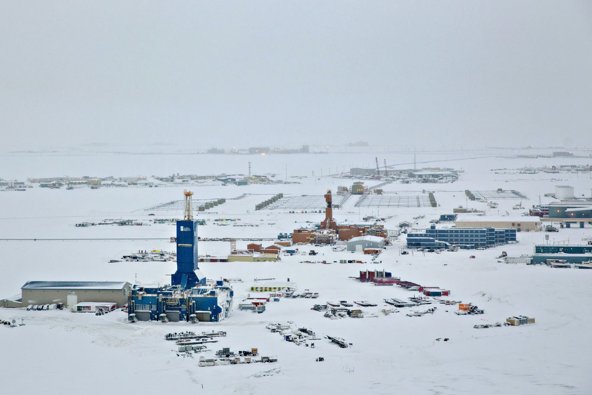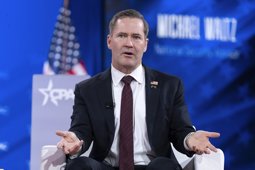
Trump Reopens Alaska Oil Drilling
Trump restores access to Alaska’s National Petroleum Reserve, reversing Biden’s drilling restrictions on 13 million acres.
Energy Policy Reversal Targets Arctic Drilling Restrictions
President Donald Trump has authorized a major reversal of Biden-era environmental policy by reopening 13 million acres in Alaska’s National Petroleum Reserve to oil and gas development. The Department of the Interior announced the proposed rescission on Monday, dismantling regulations issued in 2024 under President Joe Biden that limited energy exploration in over half of the 23 million-acre reserve on Alaska’s North Slope.
Interior Secretary Doug Burgum stated that the 2024 rule violated the Naval Petroleum Reserves Production Act of 1976 by restricting development on lands specifically designated to support U.S. energy security. “This policy failed to meet congressional intent and compromised domestic energy strategy,” Burgum said.
The restored policy returns the regulatory framework to its pre-May 2024 state, allowing leasing and drilling in areas previously placed under environmental restriction. Conservative energy leaders quickly welcomed the announcement, arguing that it would reduce reliance on foreign oil and help control gasoline prices.
Frank Lasee, president of Truth in Energy and Climate, emphasized the strategic importance of the reserve: “The National Petroleum Reserve, created by Congress over a century ago, supports responsible oil development. President Biden’s drilling ban undermined energy security, increased transportation costs, and hurt Americans at the pump.”
Trump’s decision aligns with campaign promises made during the 2024 election to restore American energy independence. On the first day of his second term, he signed executive orders reversing multiple Biden climate policies. The administration has since made energy production a cornerstone of its economic agenda.
Sterling Burnett of the Heartland Institute said, “Trump is to be applauded for following the law and reopening areas that never should have been closed. This is about prioritizing energy access for Americans.”
Jason Isaac, CEO of the American Energy Institute, called the move “a victory for American workers, consumers and allies who depend on stable, affordable energy.” He praised Trump for fulfilling a key campaign pledge to expand domestic production.
Critics of the previous administration's restrictions argue that halting exploration in Alaska contributed to rising inflation, as transportation and fuel costs surged. Gregory Whitestone of the CO2 Coalition warned that Biden’s policy would have led to “greater reliance on foreign oil and economic harm across all sectors.”
Steve Milloy, a senior policy fellow at the Energy & Environment Legal Institute, described the announcement as another step in dismantling what he called Biden’s “war on fossil fuels.” However, he cautioned that litigation from environmental groups could pose a challenge: “The Trump administration will need to go further to give investors confidence. A legislative solution may be required to shield leases from activist lawsuits.”
Republican lawmakers are also working to codify these policy shifts through budget reconciliation, advancing what Trump has referred to as his “big, beautiful bill” to roll back green energy mandates and expand fossil fuel development nationwide.
Supporters of the new policy frame it as a legal and economic necessity. As Whitestone concluded, “Responsible development of our reserves, including the 13 million acres in Alaska, is essential to maintaining energy independence and economic stability.”






